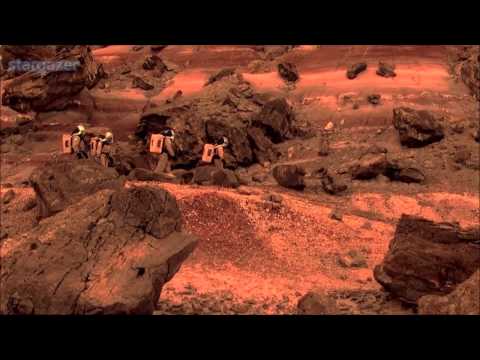Perseverance Rover Zooms in on Ancient Mars River
After a thousand sunrises on Mars. Here’s where NASA’s Perseverance Rover is exploring now a river environment. Billions of years old. That tells a dynamic story of the forces that shaped it. Let’s take a tour of this area and see where we’ll send the rover next. Perseverance is exploring Jezero Crater, where an ancient lake and river system once existed. If microbes ever lived here, signs of them could be preserved in these rocks About three and a half billion years ago, a river carved a canyon through the crater rim, filling the crater with water and depositing sand in rocks that formed a delta. On Earth, the record of such an ancient river and lake would have been erased long ago. That’s why sending a robotic explorer like perseverance is so valuable. Mars is a special place that preserves a unique record of things that happened in the first billion years of the solar system in this area. Different rock layers record different parts of the crater’s history. The flat light colored rocks were deposited on the banks of a river flowing slowly across the landscape. The boulders in the distance were deposited later in what was likely a raging torrent. And if this peculiar outcrop caught your attention, it did ours as well. It doesn’t look like sediment at all. Perhaps it’s a remnant of a lava flow now mostly eroded away. Lab equipment on Earth can accurately measure when a volcanic rock was formed. So if we can return a sample of this lava to Earth in the future, we may know when and for how long water flowed into Jezero. From here, Perseverance will continue west. In the distance, you can trace the tops of the natural levees that formed at the near and far banks of the river. The Rover will pass this area on its way upstream, continuing toward this spot where the river carves through the crater wall. You can see the canyon on the horizon here. From there, Perseverance will be well positioned to head south and ascend this natural ramp that leads up and out of the crater. We’re lucky to have a route the rover can safely drive up the rim right where we need it. Starting the climb would mark a new and exciting phase of the mission, exploring rocks far older than those in Jezero and produced in an entirely different way. One tempting target are these light colored rocks partway up the rim. They may have interacted with hot water in a hydrothermal environment, another exciting place to hunt for evidence of past life. since finishing it. Study of the crater floor. Perseverance has been climbing the delta and piecing together the history of this once watery environment. We’ve come a long way in nearly three years of exploring and collecting samples. But there’s still so much more to investigate. Follow the journey at mars.nasa.gov/perseverance













